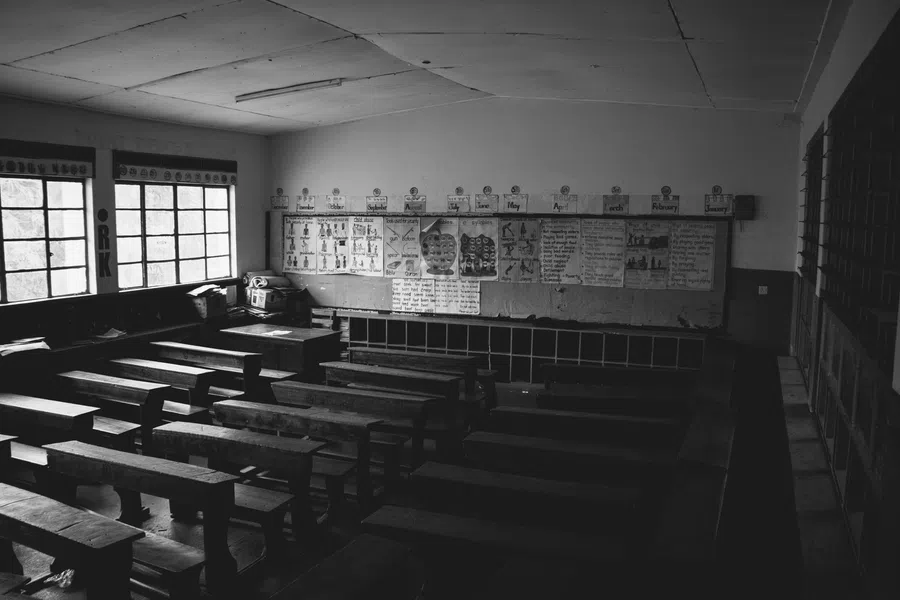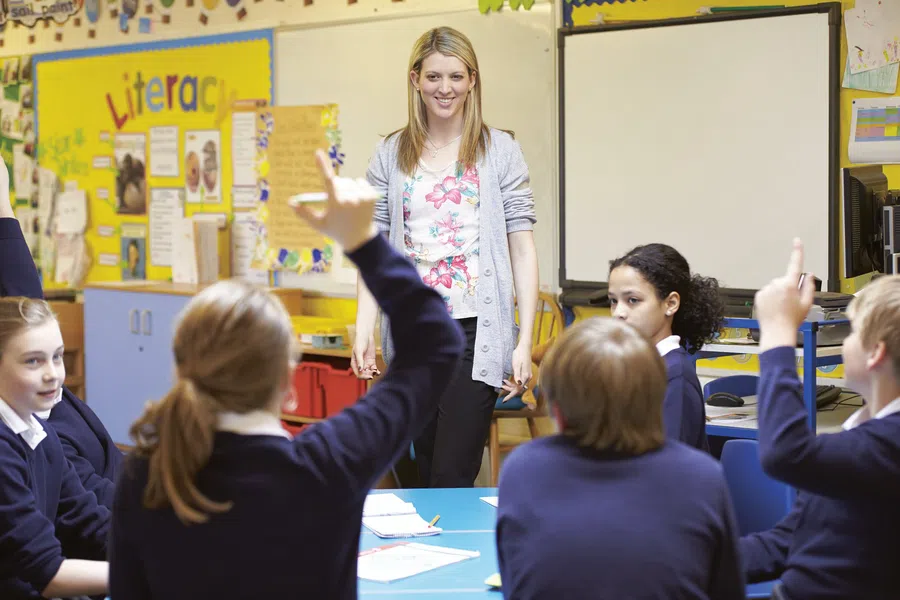Content warning: suicide, homophobia, racism

The Children's Hour Play: Background
The Children's Hour play was based on real events at an exclusive boarding school in Edinburgh, Scotland, in 1810. Jane Cumming was a biracial schoolgirl whose father had met her mother while on a business trip to India with the East India Company. Her father died when she was young, and Cumming was eventually adopted by her grandmother, Lady Cumming Gordon. Cumming's grandmother enrolled her in a school for girls run by Marianne Woods and Jane Pirie.
The East India Company, an English joint-stock company, controlled trade between England, the East Indies, and East Asia. It was once the largest corporation in the world but was eventually overpowered by the Dutch East India Company.
In 1810, Cumming told her grandmother that the headmistresses had been sexually intimate. Cumming claimed to have been woken up by them several times, having heard them sharing a bed. Cumming's grandmother removed her from the school and convinced all the other students' parents to do the same. Within days, Wood's and Pirie's school was empty. They sued Lady Cumming Gordon for libel and won the case nine years later. The court's decision was influenced partly by prejudice against Cumming for her mixed race. Despite winning their case, the women's reputations were ruined and their school permanently closed.
Hellman read about these events in an essay entitled "Closed Doors, or The Great Drumsheugh Case," written by William Roughead and included in a 1931 true-crime anthology called Bad Companions.
Homosexual activity was not decriminalized in Scotland until 1981.
The Children's Hour Summary
Set in the 1930s, Karen Wright and Martha Dobie run and teach at a New England boarding school for girls. The two women were friends from college, and together they refurbished an old farmhouse and established the Wright-Dobie School. One of the other teachers, Lily Mortar, is Martha's aunt and an ex-actress. Lily would much rather be traveling and acting than teaching, but she reluctantly stays at the school for financial reasons.

Fig. 1: The Children's Hour is set in a 1930s boarding school.
Mary Tilford is a student at Wright-Dobie. She is unruly and mischievous, always plotting and dragging the other girls into trouble with her. When Mary pretends to be sick to get out of class, Dr. Joe Cardin, Karen's fiancé and Mary's cousin, comes to examine her. Two other students, Evelyn Munn and Peggy Rogers, stand outside the room to eavesdrop on Mary's condition.
As Joe examines Mary, Martha and Lily get into a heated discussion. Martha tells Lily the school is financially stable enough that Lily could travel abroad again if she wants. Feeling insulted and undervalued, Lily lashes out at Martha. Lily accuses Martha of being jealous of Joe's relationship with Karen, claiming Martha is always rude and miserable when Joe is around. Unbeknownst to the two teachers, Evelyn and Peggy overhear everything.
Lily accepts Martha's offer and is abroad when the entire scandal happens. Because she is overseas, she cannot defend Martha and Karen during the later court case.
After Mary is deemed healthy, she is furious she didn't get away with her ruse. She presses her peers for what they learned while eavesdropping. Peggy doesn't want to tell Mary anything, but Mary threatens both girls. After hearing about Martha's jealousy, Mary calls her grandmother, Amelia Tilford, and asks her if she can leave the school. Amelia adamantly refuses until Mary twists what her friends told her, telling her grandmother Karen and Martha are having a lesbian affair. Amelia, who helped build the school and is influential in town, is appalled. She begins calling every parent and convincing them to unenroll their children because of the scandal.

Fig. 2: Mary falsely accuses her headmistresses of having a lesbian affair.
When Martha and Karen learn why they have lost all their students, they confront Amelia at her house. Mary's lie is almost outed when she has an inconsistency in her story, but Mary has blackmailed another student, Rosalie Wells, to lie and corroborate her story. Still determined to save their school and reputations, Martha and Karen sue Amelia for libel, but they lose the case with only Mary's testimony as evidence against them.
Seven months after the original accusation, Martha and Karen have lost everything—their school, their reputations, and their future prospects in their town. Everyone except for Joe believes they are lovers. Joe asks Karen to run away with him to a new city where she can have a fresh start. Karen is afraid, believing she will ruin his life like she did her own. She tries to break up with him, but he refuses to leave her until she fully thinks the situation through.

Fig. 3: Martha and Karen lose everything after losing the court case.
Meanwhile, Martha has heard what happened between Joe and Karen. In the wake of the scandal, Martha realizes she might have romantic feelings for Karen after all. When she tells Karen, Karen is dismissive and tells Martha she is confused. Martha goes into her room and shoots herself. Right after Martha's suicide, Amelia stops at Karen's residence to ask for forgiveness—Mary's lie has been discovered. But it is too late, and Martha died believing she ruined her closest friend's life.
The Children's Hour Monologue
Two of the most important monologues in the play come from Martha and Karen after they've lost their libel suit and their school has closed. Both monologues reveal how irrevocably and deeply the rumors have affected the women's lives.
Karen's monologue is directed at her fiancé, Joe. Although he remained loyal throughout the entire scandal, Karen tells Joe to ask her if the rumors about her and Martha are true. When he does, Karen denies the allegations but takes his question as a sign he doesn't trust her. Karen says:
No, no, no. That isn't the way things work.
Maybe you believe me, I'd never know whether you
did or not. You'd never know whether you did, either.
We couldn't do it that way. Can't you see what would
happen? We'd be hounded by it all our lives. I'd be
frightened always, and in the end my own fright
would make me hate you. (Sees
slight movement he makes) Yes, it would. I know it
would. I'd hate you for what I thought I'd done to
you. And I'd hate myself too. It would grow and
grow until we'd be ruined by it. (Sees him about to
speak) Ah, Joe, you've seen all that yourself. You
knew it first." (Act III)
Karen's monologue reveals the full implications of Mary's lie. Not only did she ruin Karen and Martha's careers, but she also ruined their relationship with their loved ones and with themselves. Karen will never be able to have a normal relationship with Joe that isn't marred by scandal and uncertainty.
Meanwhile, Martha's monologue confesses how the rumors have revealed a truth Martha never knew—she loves her friend. Martha says,
There's always been something wrong. Always – as long as I can remember. But I never
knew it until all this happened. You're afraid of hearing it; I'm more afraid than you. Listen
to me. You've got to know it. I can't keep it any longer. I've got to tell you how guilty I am.
I've been telling myself since the night we heard the child say it. Telling myself that I am
guilty of nothing; I've been praying I could convince myself of it. I can't, I can't any longer.
It's there. I don't know how, I don't know why. But I did love. I do love you. I resented
your marriage; maybe because I wanted you; maybe I wanted you all along; maybe I
couldn't call it by a name; maybe it's been there ever since I first knew you – I never felt
that way about anybody but you. I've never loved a man – I never knew why before.
Maybe it's that. It's funny; it's all mixed up. There's something in you, and you don't know
it and you don't do anything about it. Suddenly a child gets bored and lies – and there
you are, seeing it for the first time. I don't know. It all seems to come back to me. In some
way I've ruined your life. I've ruined my own. I didn't even know. There's a big difference
between us now, Karen." (Act III)
Karen is dismissive of Martha's confession and tries to convince Martha her feelings have been confused because of the court case. Martha's dialogue is undoubtedly the most emotional of the play, yet Karen pushes her away in her time of vulnerability. It is because of Martha's feelings of guilt and isolation that she commits suicide. Martha goes from having a friend fighting by her side to feeling completely alone and uncertain of her true identity.
The Children's Hour Character Analysis
The main characters in the play are the headmistresses Karen and Martha, their student Mary, and Karen's fiancé Joe.
Karen Wright
A kind, patient 28-year-old woman, Karen Wright has put everything into founding the Wright-Dobie School. All of her students (with the exception of Mary) love her. Despite Mary's lies and theatrics, Karen is patient and kind, and the other students believe she's even easier on Mary than the rest of them. Karen is excited to marry Joe but wants to ensure the school is financially stable first. Even after their marriage, she still plans on working at the school with Martha. Karen is stubborn and persistent, refusing to give up even when Joe offers to take her and Martha away to a city where they could start over. Karen is dismissive of Martha's affections for her, not because she's insensitive, but because she believes the case has confused her friend.

Fig. 4: Karen and Martha are teachers and headmistresses at Wright-Dobie boarding school.
Martha Dobie
Karen's friend since college, Martha Dobie is secretly in love with her co-headmistress. Martha is incredibly jealous of Joe's relationship with Karen and speaks negatively about the wedding. She makes up excuses about why the wedding needs to be pushed back but gets defensive when her aunt points out her jealousy issues. Martha has reportedly always been overprotective and jealous of her female friends, even as a child, but she doesn't admit to herself she's gay until Karen decides to leave Joe. Martha commits suicide because she feels intense guilt for inadvertently ruining Karen's life.
Mary Tilford
Mary Tilford is Martha and Karen's conniving, manipulative, untruthful student. In the opening scene, Mary blatantly lies to her teacher, telling Lily she is late to class because she was gathering flowers to give her. In reality, Mary stole the flowers from the school's garbage and didn't want to go to class. Mary pretends to faint to get out of trouble, blackmails other students into doing her bidding, and lies to adults and students alike. Even when she sees how much her lies have hurt her former headmistresses, Mary keeps up the ruse.
Joe Cardin
Karen's fiancé, Joe Cardin is patient, respectful, and selfless. He stands beside Karen amidst the homosexual scandal and trusts she wouldn't lie to him. He is also incredibly kind to Martha, even though she is rude to him and wants to stop him from marrying Karen. At the end of the play, Joe offers to save both Karen and Martha from their public shame, although part of him might wonder if Karen really is a lesbian.
The Children's Hour Themes
The main themes in The Children's Hour are the power of gossip and the consequences of widespread homophobia.
The Power of Gossip
Mary tells one lie to her grandmother and soon Martha and Karen are out of a job, Karen's engagement fails, and Martha commits suicide. Gossip has enormous power in the play as the characters spread rumors and build off of them. During a heated moment, Lily tells Martha she needs to stop being jealous of Joe and get a man of her own. But that is not the story the rest of the town hears. Mary manipulates Lily's angry outburst, positioning Martha as a jealous lover who will never find a man because she is so attached to her lesbian colleague.
Mary's grandmother accepts Mary's lies as facts and passes them along to the community. No one ever questions the gossip because it comes from the lips of a prominent, powerful family. Instead, the entire town spreads falsities, willing to ruin the women's lives because of a rumor someone else claimed to be true.

Fig. 5: Gossip ruins Martha and Karen's lives and careers.
The Consequences of Widespread Homophobia
The consequences of these rumors also show how rampant and devastating homophobia was in the 1930s. Although there is no evidence suggesting Martha and Karen are lovers, within days all of the parents removed their children from Wright-Dobie School. Some of these parents had their daughters enrolled in the school for years, but homophobia caused them to remove their children without even speaking to the headmistresses.
In the early 20th century when the play was written, homosexual acts were illegal and punishable by jail time in the United States. It wasn't until 2003 that homosexual acts were legalized and 2015 when same-sex marriage was legalized nationwide. The prejudice against lesbians is so strong Martha and Karen lost their libel case, even though there was no evidence proving they had an affair. Whether or not they were gay, homophobia ruined their lives and led Martha to commit suicide.
The Children's Hour was banned in Boston, Chicago, and London for being indecent because of its reference to two women having an affair. It was also rejected for the Pulitzer Prize for Drama for the same reason; one judge refused to even watch it because of its homosexual themes.
The Children's Hour - Key takeaways
- The Children's Hour was written by Lillian Hellman and first produced in 1934.
- The play is about a schoolgirl telling a lie about her headmistresses and ultimately ruining their lives and careers.
- The main characters in the play are the headmistresses Karen and Martha, their student Mary, and Karen's fiancé Joe.
- The most important monologues occur after Martha and Karen have lost everything, and the speeches reveal how the scandal has changed their lives.
- The main themes in The Children's Hour are the power of gossip and the consequences of widespread homophobia.

Similar topics in English Literature
Related topics to American Drama














